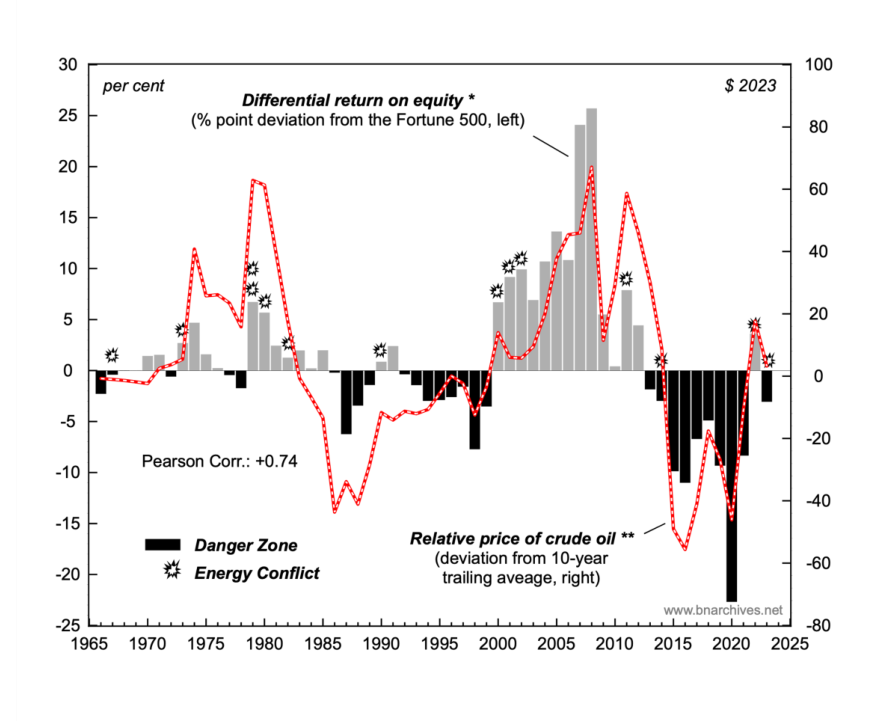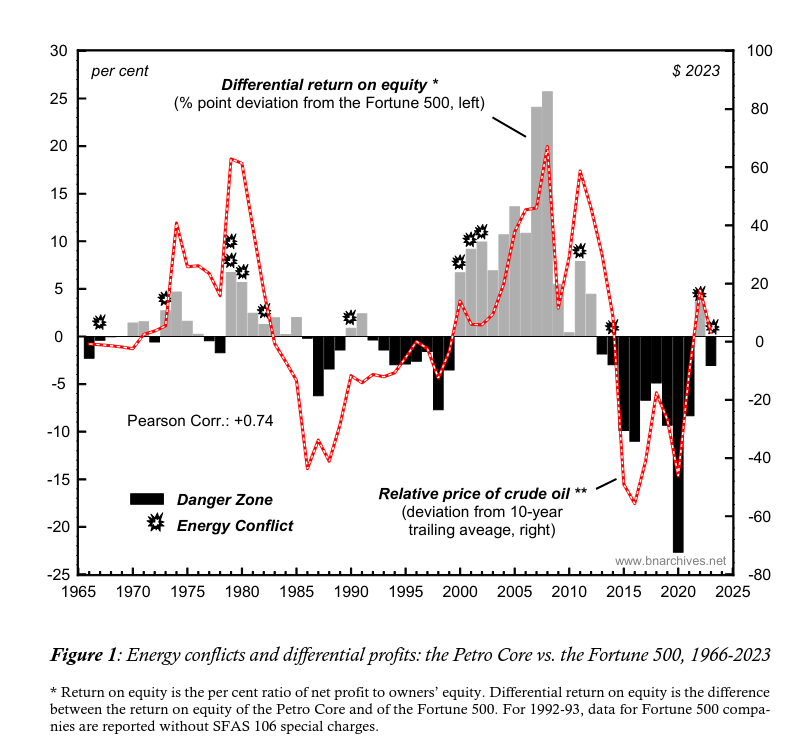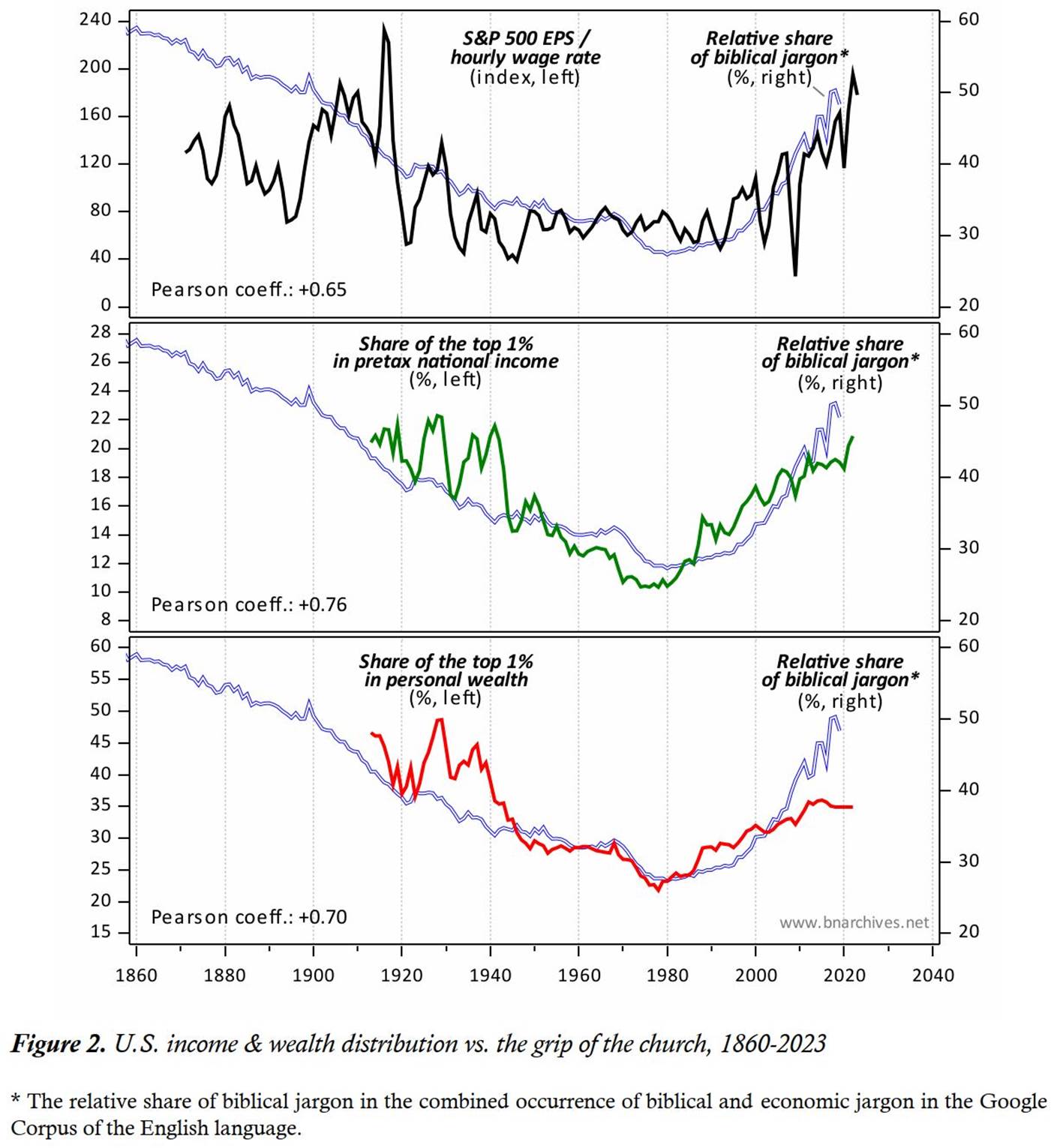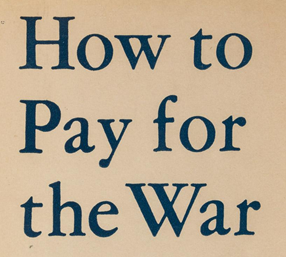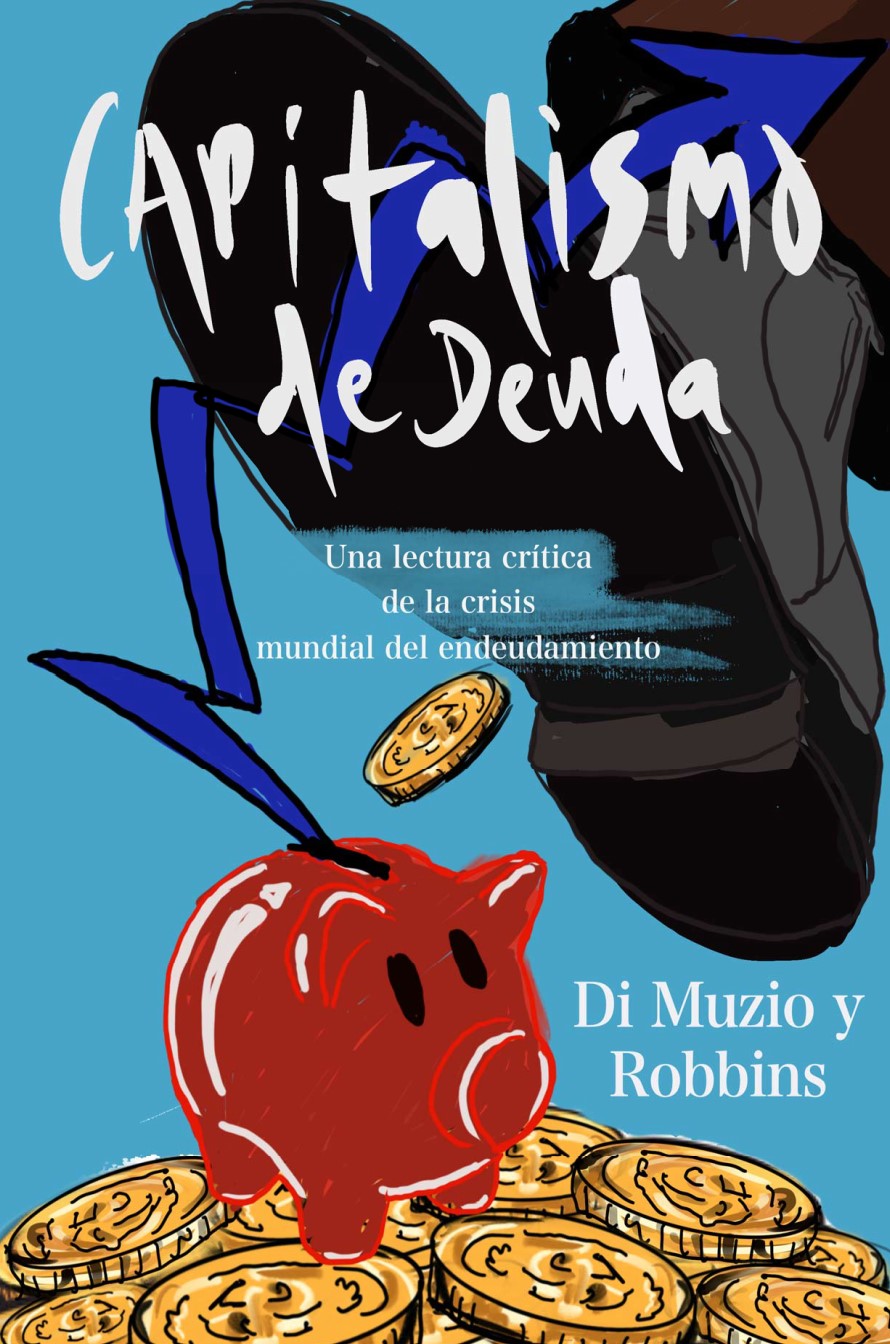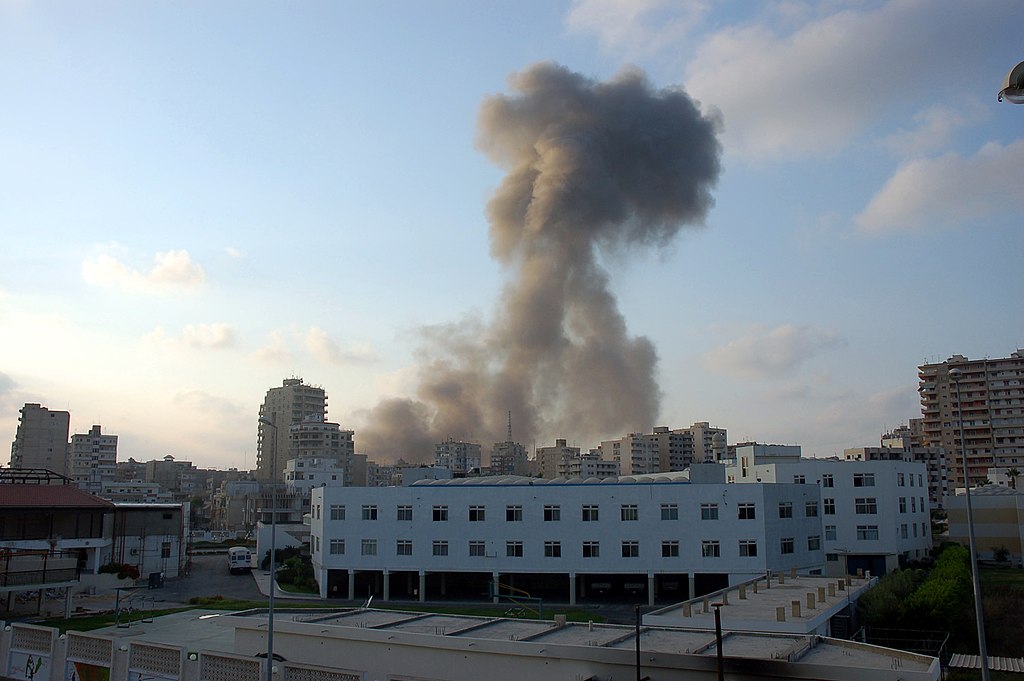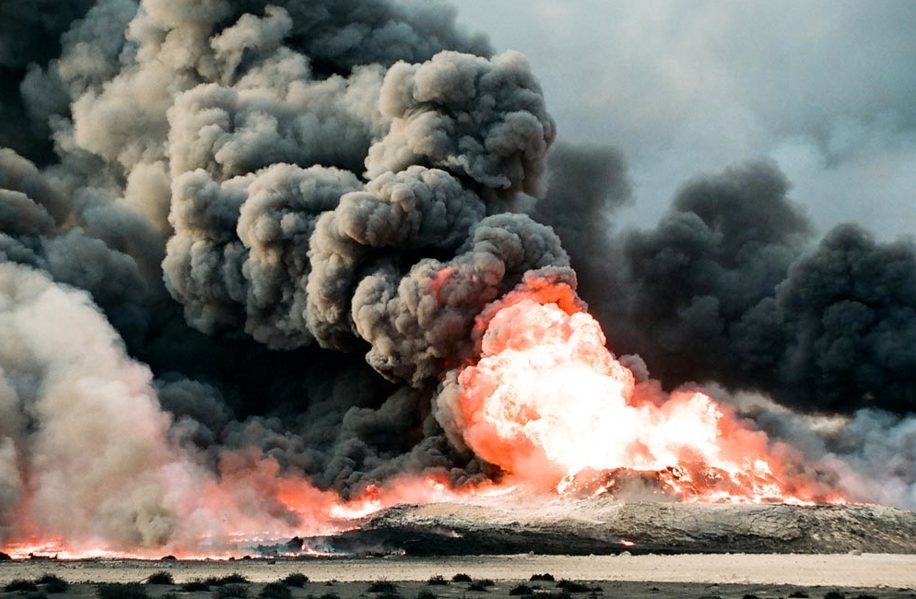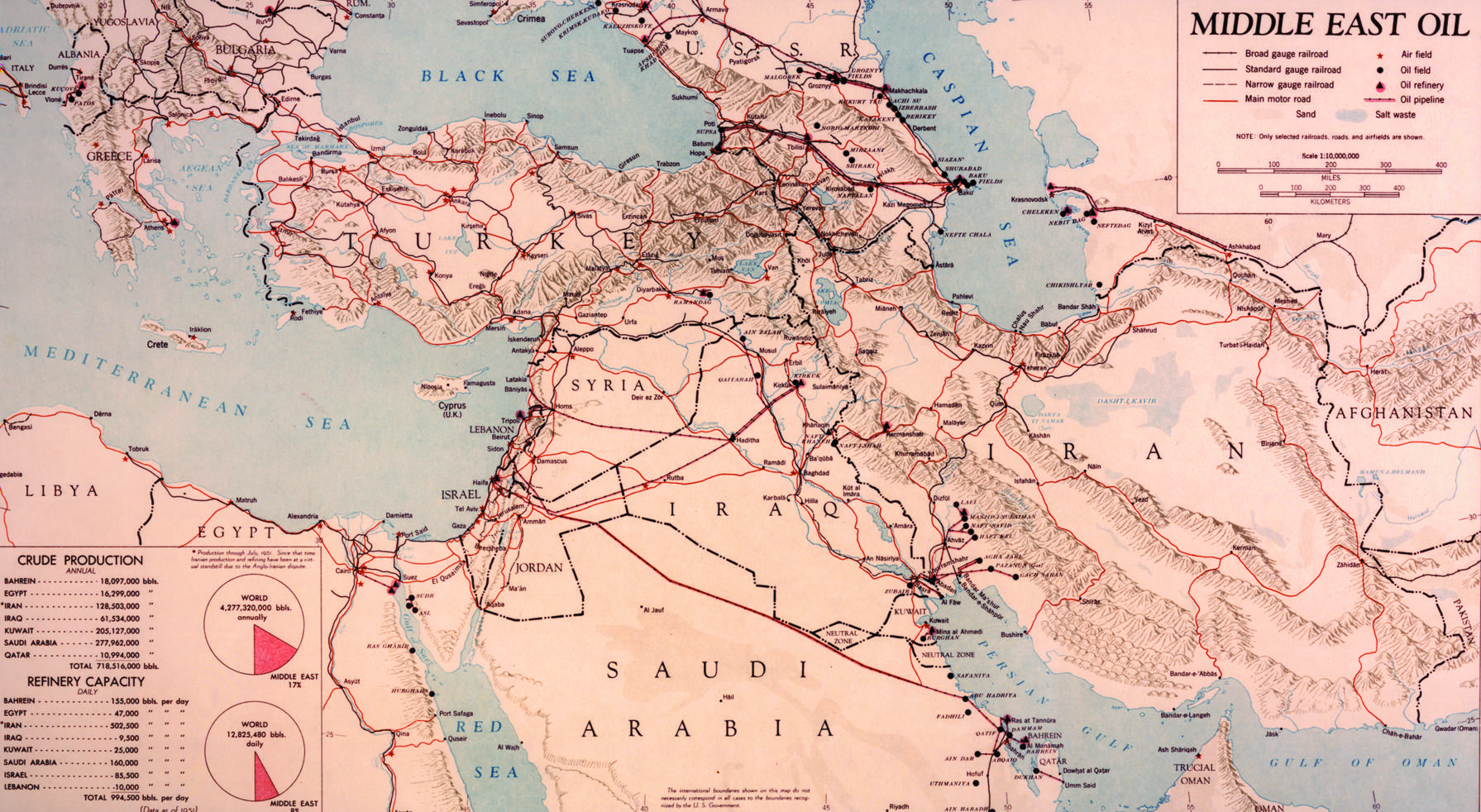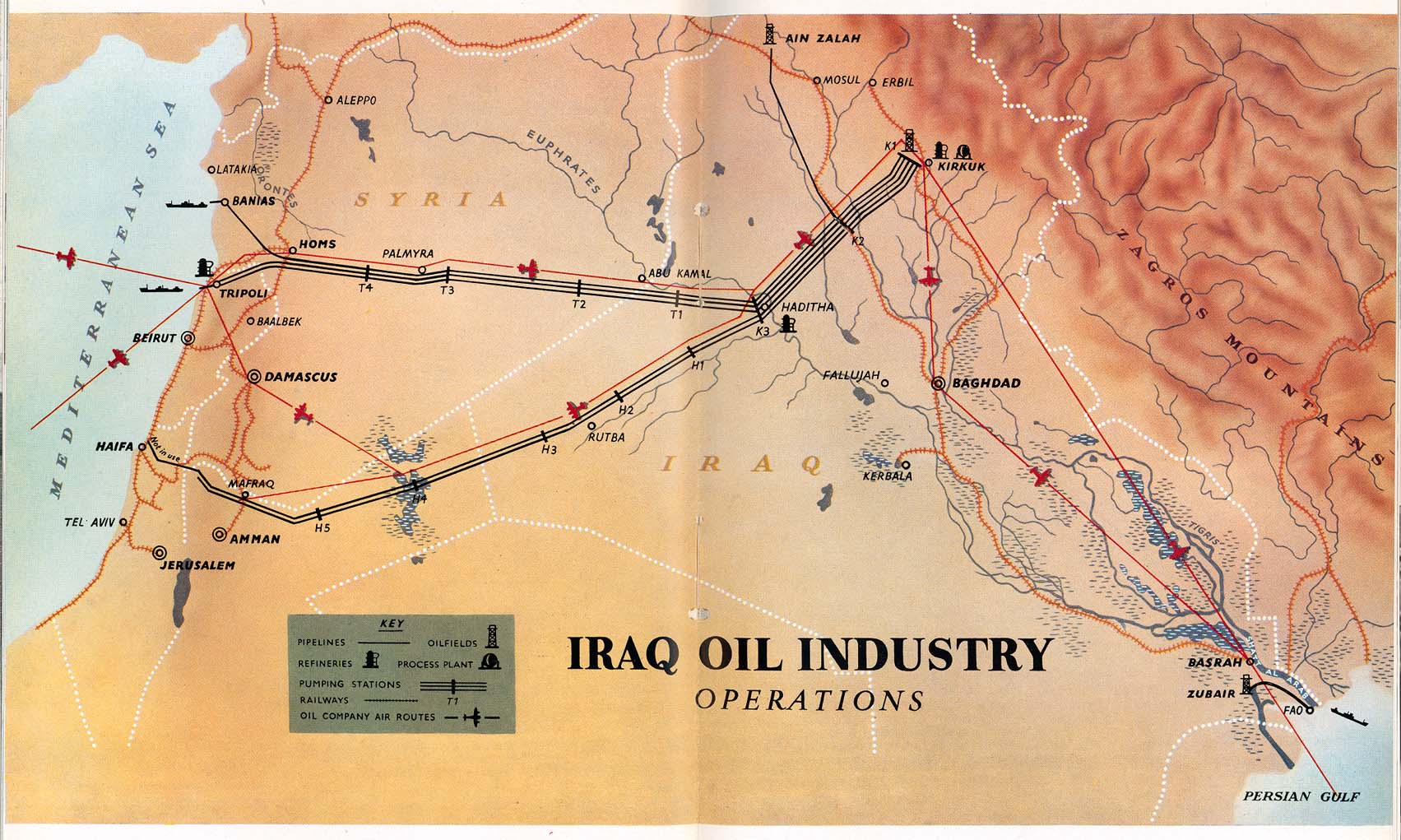Regan Boychuk British, American, and Russian elites planned global domination through one great war a century ago, but it did not quite work out. Instead, today we approach a third world war to avoid democracy and the rational conservation of resources on a finite planet. It appears imperial monarchs were colluding in 1914 to vanquish […]
Continue ReadingBichler & Nitzan, ‘The Road to Gaza, Part II: The Capitalization of Everything’
Abstract Our recent article on ‘The Road to Gaza’ examined the history of the three supreme-God churches and the growing role of their militias in armed conflicts and wars around the world. The present paper situates these militia wars in the broader vista of the capitalist mode of power. Focusing specifically on the Middle East, […]
Continue ReadingBichler & Nitzan, ‘הדרך לעזה: על משטרי הכוח וכנסיות האל העליון היחיד (The Road to Gaza: On Modes of Power and Supreme-God Churches)’
Abstract מלחמת הקודש המתנהלת בין המיליציות הרבניות לבין המיליציות האיסלמיות הינה מסוג חדש. אבל הדרך למלחמה בעזה נסללה עוד לפני כששת אלפים שנה, בעת שקמו לראשונה משטרי המלוכה-כהונה במסופוטמיה. אוליגרכיות אלה היו הראשונות שיצקו תשלובת חזקה של מלך עריץ בארמון וכוהני אל-עליון במקדש. ילידי המזרח התיכון היו הראשונים בהיסטוריה האנושית שזכו בכבוד להתקיים כנתינים כנועים […]
Continue ReadingDi Muzio & Dow, ‘Re-Considering the Origins of the Climate Emergency: War, Finance, and the State’
Abstract One of the most important and recurring debates in the field of International Political Economy and international affairs are the links between capitalism, fossil fuel energy and climate change. In these debates, the origins of our current climate emergency are rooted in how Britain became the first country to become reliant on mass production […]
Continue ReadingBichler & Nitzan, ‘The Road to Gaza, Part II: The Capitalization of Everything’
Abstract Our recent article on ‘The Road to Gaza’ examined the history of the three supreme-God churches and the growing role of their militias in armed conflicts and wars around the world. The present paper situates these militia wars in the broader vista of the capitalist mode of power. Focusing specifically on the Middle East, […]
Continue ReadingBichler & Nitzan, ‘The Road to Gaza’
Abstract The war that started in 2023 between Hamas and Israel is driven by various long-lasting processes, but it also brings to the fore a new cause that hitherto seemed marginal: the armed militias of the Rabbinate and Islamic churches. The Rabbinate militias, embodied in Jewish settler organizations, have taken over not only Palestinian lands, […]
Continue ReadingBichler & Nitzan, ‘Blood and Oil in the Orient: A 2023 Update’
Abstract The 2023 war between Hamas and Israel elicits many different explanations. As with previous regional hostilities, here too, the pundits and commentators have numerous overlapping processes to draw on – from the struggle between the Zionist and Palestinian national movements, to the deep hostility between the Rabbinate and Islamic churches, to the many conflicts […]
Continue ReadingThe birth of capitalized credit money is inextricably bound with war
Jonathan Nitzan and Shimshon Bichler Originally published on Twitter During the twilight of feudalism, wars, whose cost soared in tandem with their material scope and unit price, were the most financially demanding expenses. Changing military technologies, beginning with the crusades and continuing with the Hundred Years War, made it increasingly necessary to rely on hired […]
Continue ReadingDi Muzio & Robbins, ‘Capitalismo de deuda’
Abstract Capitalismo de deuda es un esfuerzo por descifrar cómo la tecnología de la deuda se ha convertido en uno de los mayores obstáculos para las aspiraciones democráticas y racionales de la sociedad moderna. Richard Robbins y Tim Di Muzio muestran que la deuda, entendida como una tecnología de poder, es un engranaje insertado en […]
Continue ReadingGuillem, ‘Análisis de conflictos y Relaciones Internacionales, una elaboración teórica de Sociología del Poder. Causas de la Guerra del Líbano de 2006’
Abstract SPANISH Si observamos la literatura sobre la Guerra del Líbano del 2006, llama la atención la ausencia de un marco teórico claro en la mayoría de los análisis. Igualmente se perciben notables discrepancias en algo tan básico como las causas de la guerra y encontramos destacadas diferencias en la explicación de la conducta de […]
Continue ReadingProfit warning: there will be blood
Shimshom Bichler and Jonathan Nitzan The following research note first appeared on Real World Economics Review Blog. We have just updated the charts in our 2014 RWER paper ‘Still About Oil?’, and the picture they portray reads like a capitalist call for arms. Beginning in the late 1980s, we suggested that, since the late 1960s, […]
Continue ReadingNo. 2017/04: Bichler & Nitzan, ‘Arms and Oil in the Middle East: A Biography of Research’
Abstract During the late 1980s, we printed a series of working papers, offering a new approach to the political economy of Israel and wars in the Middle East. Our approach in these papers rested on three new concepts. It started by identifying the Weapondollar-Petrodollar Coalition – an alliance of armament firms, oil companies and financial […]
Continue ReadingNo. 2014/04: Bichler & Nitzan, ‘Still About Oil?’
Abstract During the late 1980s and early 1990s, we identified a new Middle East phenomenon that we called ‘energy conflicts’ and argued that these conflicts were intimately linked with the global processes of capital accumulation. This paper outlines the theoretical framework we have developed over the years and brings our empirical research up to date. […]
Continue Reading

